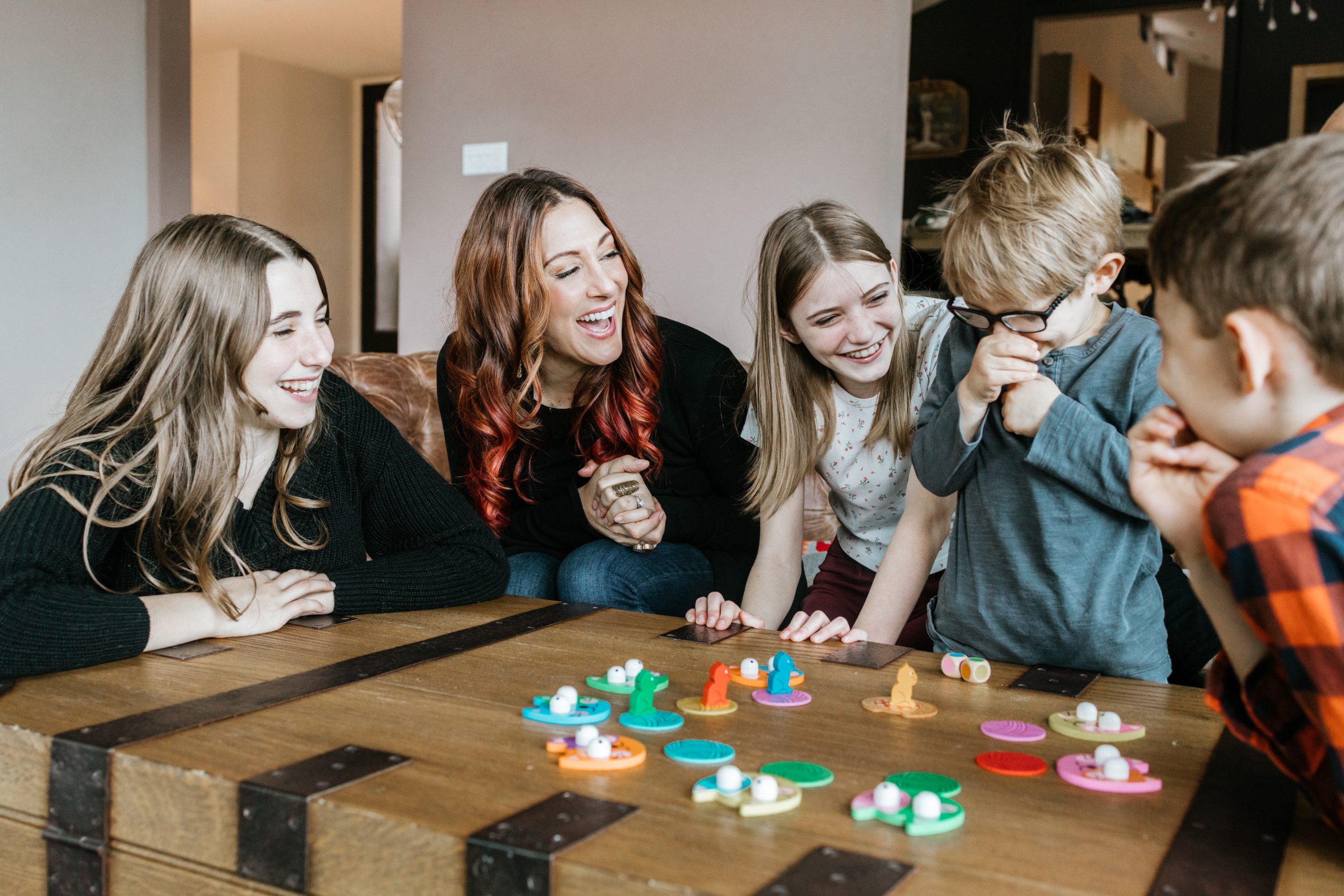How to make the most of your time around the dinner table for maximum family closeness
Everyone has heard the advice to have dinner with your family every night without devices at the table. But then, there you are, device-free, staring at your family with blank faces. Now what?
As a new stepmom, many years ago, I wanted to learn ways to get closer to the kids. And I came across an article about how to get your kids to open up to you.
One of the ideas I read was about asking your kids not just how their day was, but something specific like, “What was your favorite part of the day?” or “What was an activity in your class that made you smile?” The article suggested that parents should ask a question that can’t just get “okay,” as a response.
This tradition grew into a discussion we have now every night around the dinner table, called, “Rose, Bud, Thorn. Grateful For.”
Rose, Bud, Thorn, Grateful For
The idea with Rose, Bud, Thorn, Grateful for is that, in each day we can all find a “Rose” (that sweet-smelling, pleasurable part of our day), a “Bud” (something you are hopeful about or looking forward to), a Thorn (that annoying, bummer of a thing, or unpleasant experience), and something – anything, that you’re Grateful for that happened or sparked gratitude that day.
The insights and learnings into my kids’ worlds that playing this game has given us has been a game-changer for our family. We find out what’s on their minds – what’s bothering them, what they’re excited about. They find out about us and what being an adult is like.
They get unconditional support from us and their siblings as we celebrate roses and buds and hold their hearts (with some possible advice, though not always) with their thorns. Sometimes thorns can be reframed as positives, and sometimes we just need to hold each other through something painful.
In this vulnerability of sharing, trust between us all is built!
We don’t force a child to name their RBTGFs, sometimes it’s okay to just listen! But more often than not, if a kid passes their turn, by the time the game is over and others have shared, they want to share, too.
This game is not just for older kids, we continued playing it after Sage was born and when he was just a couple of years old and I’ll never forget the over-the-top cuteness of our little toddler saying proudly, “My fay-ret day!”
The “Appreciate You” game
Our “Appreciate You” tradition started on a birthday at a friend’s house, and I loved it so much I incorporated it into our special occasions.
It’s simple: Go around the table and tell the person being honored (Mother’s Day, Graduation, Birthday, etc..), what you appreciate or admire about that person.
You’d be surprised how very powerful something so simple can be. Everyone loves to hear why they matter, especially children. And so often responsibility-laden parents and bickering kids can get stuck in negative thinking.
To strengthen bonds in your family, I suggest doing a round of “Appreciate You.” It could be small or big. It could be anything from, “I appreciate you making my lunch everyday,” to “I love how patient and gentle you are with your little brother,” to “I admire how you kept your grades up even while you were so sick this semester,” to “ I appreciate how you always check in to see how you can be helpful,” to “I love how you see the positives in any situation.”
Establishing the ability to see what you appreciate in others is a skill that, when developed as kids, will cultivate positivity for the rest of their lives. They’ll be conditioned to see the good in people, to find the positive. Telling someone, “Thank you” will come naturally to them. It will benefit all their relationships as adults. And that is impacting the world, my friends!
How family closeness creates calm
No family is without squabbles and conflict at times, but a family that feels trust, safety and support is overall a more calm, harmonious one. When a kid knows that at dinner they’ll get to share their burdens and get help, they are less likely to act out earlier in the day.
Your angst in maybe not knowing what’s going on with your kids will dissipate into security that you know they’ll come to you when they need you, because you’ve established this open line. Anxiety is most often felt with the unknown, and you won’t have to guess what’s going on in their world.
A close, compassionate family is a tighter team, one that pitches in more easily for each other. And a sure way to achieve calm is having a whole team of supporters behind you.
I’d love to know if you try one of these games and how it goes over at your dinner table!
For more tips on how to own your calm, sign up for the Chaos to Calm newsletter!

